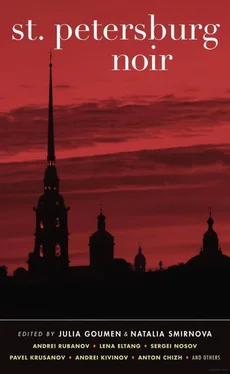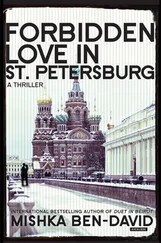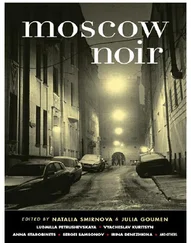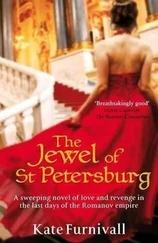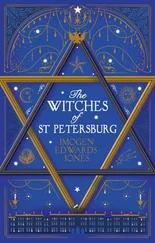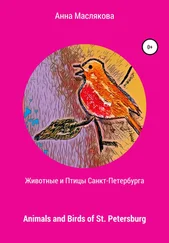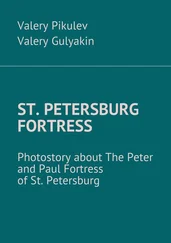After a month, Olya asked her mother to babysit Ilka and set off to her girlfriend’s—they had drinks, gossiped about everyone, like before when Olya didn’t have a child. A little later, Olya said that she needed a job—it would be ideal to start off working from home, some modest freelancing, then later she could think about something more serious. As things go, money was badly needed. In three days time her girlfriend called and offered her work transcribing text; precisely the kind of work that she was best suited for had fallen into Olya’s lap. Some money began to appear, and life began to improve.
8.
Under the guidance of Professor Ruysch, Peter Alexeyevich got so carried away with anatomy that he forgot about shipbuilding for a time. Being who he was, or course, he didn’t forget for a second that that the czar of a superpower must spend every minute thinking about vital matters, so he continued to call on fortresses, shipyards, meet with heads of state and engineers, but Peter Alexeyevich’s thoughts were always there, in the anatomical theater.
In the anatomical theater of Herman Boerhaave in Leiden, Czar Peter participated in the dissection a cadaver, and then another. He was good at it, and he liked it. In his diary he wrote of being struck by the sight of a dissected human body—the heart, lungs, kidneys, the “tendons” of the brain… There remained one last thing to do—establish something similar at home, in Russia.
9.
When Ilka turned two Olya found steady work as a typist. She wasn’t paid much, although she supplemented this by freelancing. Plus, the daily trip to the office forced her to take care of herself once again, and interacting with people was really quite pleasant.
During this time Ilka continued to behave like an angel. He was indeed an angel for the most part, only with dark hair. He and his mother had the same face—thin, with big eyes. He’d attentively monitor the world around him, feeding on information. Because he didn’t know how to speak yet, he would point his fist at whatever interested him and peer up into his mother’s eyes. Olya loved explaining everything to him and couldn’t wait for him to begin asking questions. More than anything in the world she wanted to speak with her son.
10.
Having purchased several collections from various biologists and anatomists across the border, Peter Alexeyevich returned to Russia with steadfast resolve to establish Kunstkamera in the motherland—a cabinet of curiosities following the example of his new friends in the West. In St. Petersburg it was decided that the collection would be housed at the Summer Palace, and Peter personally supervised what went where.
But the collection kept growing and growing. The last time he set out for Holland, Peter Alexeyevich made the acquaintance of the well-known apothecary and collector Albertus Seba—the very one who drowned in one of the canals some twenty years after meeting the Russian czar. Peter Alexeyevich had the opportunity to purchase an enormous collection—an entire pharmaceutical assemblage—from Seba. The collection was moved to St. Petersburg and it became clear that the Summer Palace alone could not contain it.
11.
Ilka had a breakthrough as soon as he turned two and a half. He literally spilled everything that had accumulated onto his mother. Everything interested him—a lamp, a door, the wind at the window, the neighbor’s cat, droplets on glass, a mirror, a television, a sandwich with butter and kielbasa, the chamber pot, day and night. He posed hundreds of questions and listened attentively to every answer.
Olya was happy. Finally, she didn’t just get to read her son a story for the night or sing him a song, but could carry on a more or less comprehensible conversation with him. She got the impression that Ilka was attempting to dig down to the truth of the matter. He didn’t just listen to everything that his mother told him, he comprehended, and it seemed that he even analyzed. Olya occasionally marveled at how Ilka remembered what she told him. That’s how it was—her son didn’t ask the same question twice, though often the next question followed the prior for the most logical reasons.
Olya and Ilka would have long talks now. Ilka would ask, and Olya would start explaining whatever it was that interested him with pleasure. Neither he nor she grew weary of this.
12.
They began to search for a place. Various suggestions were made, but Peter Alexeyevich didn’t care for them. The only thing that could be agreed on was that the future museum must be located somewhere on Vasilyevsky Island. The question was where.
One day Czar Peter was strolling around Vasilyevsky. The weather was fine—a rarity for Petersburg, which is accustomed to rains and the low-hanging gray sky. Only a gnat pestered him, but nothing could be done about it. Peter Alexeyevich was lost in his own thoughts when two pines, the likes of which he’d never seen, suddenly appeared before his eyes. The pines grew very near, and the fat branch of one had grown into the trunk of the other. Peter stopped before the trees—Siamese twins that had grown into one common bough; he touched the trunk with his hand, circled it, and grinned. The question of where the cabinet of curiosities was to be located had been decided.
13.
When Ilka was almost three, Olya decided to place him in daycare. Out of two daycares located not far from home, she chose the one that seemed best to her—anyway, there was no money for anything specialized, private, or extravagant, but here at least the nursery-governess who had a name found in stories and jokes, Maria Ivanovna, smiled in a kind way and Ilka seemed to like it. At the very least it didn’t scare him, even though he understood right away that Mama was handing him off to someone else.
Ilka looked at Olya with woeful eyes and asked: “When are you coming back?”
“Soon, my son, soon.” Olya suddenly had a feeling that her heart would tear apart.
“All right,” Ilka said sadly. Taking Maria Ivanovna by the hand, he went off into a large playroom to join the other children.
Olya wasn’t herself at work. It was one thing to leave her child with his grandmother, but another matter altogether to leave him with some nanny who is a stranger, even if she did have a kind expression. Olya was perpetually distracted, jumped each time the phone rang, made a ton of mistakes, and as soon as the workday was over, she sprang from her seat as though she’d been stung and raced in the direction of the daycare. Ilka was already waiting for her—calm, carefree, and full of new information. Olya calmed down.
14.
The future Kunstkamera building was placed under the direction of a German, Georg Johann Mattarnovi, who’d had a hand in the finishings of the Summer Palace where the collection was being housed for the time being. For some reason construction moved along slowly; it wasn’t easy. The years passed, yet still there was no building. For Peter Alexeyevich, the erection of Kunstkamera was one of the most important works of his life, but he didn’t live to see the completion of construction—he died seven years following the laying of the foundation stone, even though by his death just the walls had been completed. Then the architect died as well, and others carried on construction.
After another year, they began moving the collection from the Summer Palace. Yet construction went on and on. Rumors spread that the Nevsky land was refusing to house a collection of dead monstrosities. But enlightened people didn’t pay attention to such rumors—they’d say the collection had been in Petersburg for years already, so there was nothing to talk about. And soon, the rumors dissipated to nil.
Читать дальше
